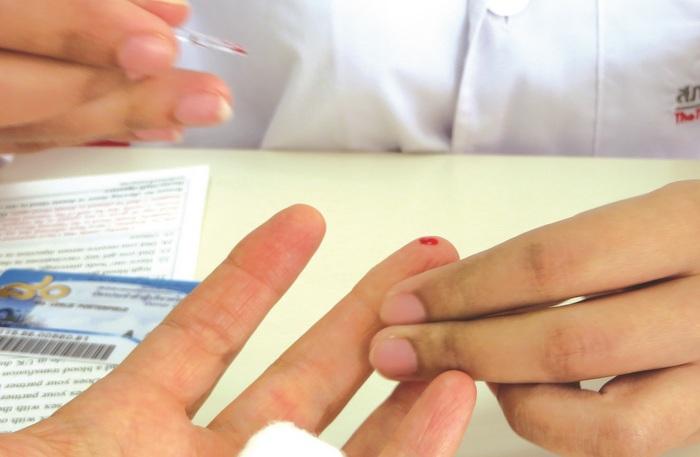Excuse Buster: Proper diet to battle cancer

PHUKET: In 2014 the British Journal of Cancer released a study that tested the relationship between a commonly used blood test for diabetics and pre-diabetics (HbA1c) and the development of several cancers. As has been widely published, diabetes increases the risks of developing several cancers, so
testing diabetes and pre-diabetes markers makes sense.
The results concluded that high HbA1c did in fact correlate with an increased cancer risk for a number of cancers (prostate was not one of them).
What that basically means is that the role of diet is again seen to be critical in the prevention of cancer. Let me break this all down further…
WHAT IS HBA1C?
HbA1c also known as glycated hemoglobin is a marker or signpost for chronic hyperglycemia (high blood sugar).
Hb stands for Hemoglobin which is a protein in red blood cells that carries oxygen throughout the body.
A1c is the part that measures the amount of glycation that the protein hemoglobin has undergone.
Glycation simply means that sugar has stuck (bonded) to a protein or fat, but in this specific case to hemoglobin the protein in red blood cells. Because red blood cells typically live for three to four months, this gives an idea of longer term blood sugar regulation.
WHY IS GLYCATION SO BAD?
Glycation leads to the increase in free radicals which damage cells and also increases inflammation – processes that are considered to be at the root of disease.
Neurologist David Perlmutter in his fantastic book Grain Brain also notes that HbA1c is directly related to the rate at which the brain shrinks on an annual basis.
So this blood test not only looks at the risk of diabetes, but also looks as if it will be helpful in the detection, and hopefully prevention, of cancer and dementia!
WHERE CAN YOU GET TESTED?
I recommend discussing this test with your doctor as part of an annual physical, which I believe everyone over 40 should have, although there’s nothing stopping younger people having one too. You can also walk into most hospitals and blood clinics (which are numerous in Phuket) and have the test done yourself for a cost of generally less than 500 baht – not a bad investment.
WHAT ARE THE IDEAL REFERENCE RANGES?
Most labs place the upper normal limit of HbA1c at about 5.7, but as Perlmutter explains, these levels are already associated with a high risk for brain shrinkage. So his recommendation is aimed at keeping HbA1c at 5.2 or even lower.
HOW DO I ACHIEVE THE HEALTHY RANGE?
Nutritionally it is achieved by reducing sugar, alcohol and high glycemic carbohydrates, like refined grains. So watch out for breads, cakes, pastries and try to swap portions of white rice for smaller portions of brown rice with lots of vegetables (a good chunk raw) plus a small portion of protein (seafood being my favorite as it is high in omega 3). Include good fats like olives, olive oil, avocados, coconut oil, or some nuts and seeds, at every meal to slow the rate at which your carbohydrate intake breaks down to sugar.
Achieving optimal health is naturally multifaceted so along with a clean, low glycemic diet, regular exercise and quality sleep are essential to blood sugar regulation.
Craig Burton is a Certified Sports Nutritionist (CISSN) with a Bachelor of Science degree (Sports Science) and a National Academy of Sports Medicine (PES) certification.
— Craig Burton
Latest Thailand News
Follow The Thaiger on Google News:


























